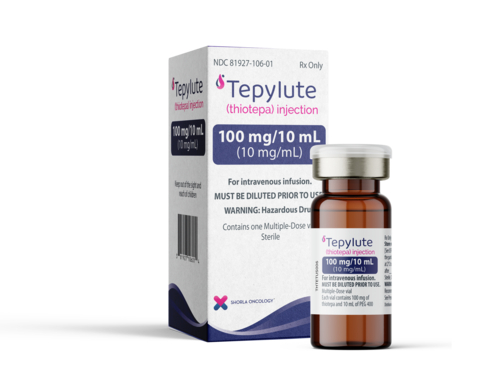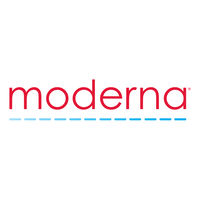预约演示
更新于:2025-05-07
Cytomegalovirus Infections
巨细胞病毒感染
更新于:2025-05-07
基本信息
别名 CMV、CMV - Cytomegalovirus infection、CMV INFECTION + [69] |
简介 Infection with CYTOMEGALOVIRUS, characterized by enlarged cells bearing intranuclear inclusions. Infection may be in almost any organ, but the salivary glands are the most common site in children, as are the lungs in adults. |
关联
181
项与 巨细胞病毒感染 相关的药物作用机制 Respiratory syncytial virus F protein调节剂 |
在研机构 |
原研机构 |
在研适应症 |
非在研适应症 |
最高研发阶段批准上市 |
首次获批国家/地区 欧盟 [+3] |
首次获批日期2024-08-22 |
靶点 |
作用机制 UL97抑制剂 [+1] |
在研适应症 |
最高研发阶段批准上市 |
首次获批国家/地区 美国 |
首次获批日期2021-11-23 |
作用机制 UL30抑制剂 [+1] |
原研机构 |
最高研发阶段批准上市 |
首次获批国家/地区 美国 |
首次获批日期2021-06-04 |
653
项与 巨细胞病毒感染 相关的临床试验NCT06243731
Retrospective Chart Review of Safety Outcomes Associated With Use of Maribavir in Patients With Post-transplant Refractory Cytomegalovirus (CMV) Infection and Comorbid Endstage Renal Disease (ESRD) or Comorbid Severe Chronic Renal Disease Requiring Peritoneal Dialysis or Hemodialysis
The main aim of this study is to assess the safety profile of maribavir when treating refractory cytomegalovirus (CMV) infection after transplantation in adults with kidneys that are no longer functioning on their own (also called end-stage renal disease or ESRD) or have severe chronic kidney disease requiring artificial filtering of the kidney (dialysis) or the blood (hemodialysis).
In this study, already existing data will be collected from the participant's medical records. The study will only review data collected as part of the normal clinical routine and will not impact the standard medical care and treatment of participants.
In this study, already existing data will be collected from the participant's medical records. The study will only review data collected as part of the normal clinical routine and will not impact the standard medical care and treatment of participants.
开始日期2025-05-30 |
NCT06909110
Viral Specific T-Lymphocytes by Cytokine Capture System (CCS) to Treat Infection With Adenovirus, Cytomegalovirus or Epstein-Barr Virus After Hematopoietic Cell Transplantation or Solid Organ Transplantation and in Patients With Compromised Immunity
The primary purpose of this phase I/II study is to evaluate whether partially matched, ≥2/6 HLA-matched, viral specific T cells have efficacy against adenovirus, CMV, and EBV, in subjects who have previously received any type of allogeneic HCT or solid organ transplant (SOT), or have compromised immunity. Reconstitution of anti-viral immunity by donor-derived cytotoxic T lymphocytes has shown promise in preventing and treating infections with adenovirus, CMV, and EBV. However, the weeks taken to prepare patient-specific products, and cost associated with products that may not be used limits their value. In this trial, we will evaluate viral specific T cells generated by gamma capture technology. Eligible patients will include HCT and/or SOT recipients, and/or patients with compromised immunity who have adenovirus, CMV, or EBV infection or refractory viremia that is persistent despite standard therapy. Infusion of the cellular product will be assessed for safety and efficacy.
开始日期2025-05-12 |
申办/合作机构 |
NCT06853184
Phase 2, Randomized, Open-label, Active Comparator, Dose-ranging Study Evaluating the Efficacy and Safety of Artesunate for Injection in Combination With Ganciclovir or Valganciclovir for the Treatment of Cytomegalovirus Infection in Solid Organ Transplant Recipients
This study is a randomized, open-label, active comparator-controlled, dose-ranging trial of the efficacy and safety of IV artesunate in combination with IV GCV or oral VGCV and SOC treatment compared to GCV or VGCV monotherapy and SOC treatment in SOT recipients with clinically significant CMV infection.
开始日期2025-05-01 |
申办/合作机构- |
100 项与 巨细胞病毒感染 相关的临床结果
登录后查看更多信息
100 项与 巨细胞病毒感染 相关的转化医学
登录后查看更多信息
0 项与 巨细胞病毒感染 相关的专利(医药)
登录后查看更多信息
30,140
项与 巨细胞病毒感染 相关的文献(医药)2025-12-31·Human Vaccines & Immunotherapeutics
The mRNA-1647 vaccine: A promising step toward the prevention of cytomegalovirus infection (CMV)
Review
作者: Adegoke, Kolade ; Adegbesan, Abiodun ; Uchechukwu Eboson, Sandra ; Oluwasola, Victor ; Akingbola, Adewunmi ; Benson, Akpevwe Emmanuella ; Jombo, Paul Ayomide ; Adewole, Olajumoke ; Aiyenuro, Ademola
2025-12-31·Renal Failure
Incidence of cytomegalovirus infection after kidney transplantation in the modern era of immunosuppression: the VINTAGE study
Article
作者: Kobayashi, Shuzo ; Tanabe, Kazunari ; Hidaka, Sumi
2025-12-01·Journal of Clinical Immunology
Mutational Landscape of Patients with Wiskott Aldrich Syndrome: Update from India
Article
作者: Mudaliar, Sangeeta ; Dhawale, Amruta ; Kacha, Ashruti ; Iyengar, Vaishnavi ; Balaji, Sarath ; Vedpathak, Disha ; Sharma, Sujata ; Gaikwad, Pallavi ; Sampagar, Abhilasha ; Shinde, Shweta ; Setia, Priyanka ; Gowri, Vijaya ; Tamhankar, Parag ; Kambli, Priyanka ; Gupta, Maya ; Bhattad, Sagar ; Dutta, Shubhankar ; Desai, Mukesh ; Sivasankaran, Meena ; Jose, Amrutha ; Taur, Prasad ; Bargir, Umair A ; Bose, Kokoli ; Chougule, Akshaya ; Jodhawat, Neha ; Subramanian, Girish ; Temkar, Lavina ; Dalvi, Aparna ; Yadav-Malik, Reetika ; Madkaikar, Manisha ; Patel, Swati
735
项与 巨细胞病毒感染 相关的新闻(医药)2025-05-02
·生物谷
这是首次证明一种与癌症无关的普通病毒(CMV)会影响黑色素瘤的发展和治疗反应。
巨细胞病毒(CMV)是一种常见的疱疹病毒,虽然通常没有症状,但约有 50%-60%的英国成年人终生携带这种病毒。在健康人体内,免疫系统让CMV处于休眠状态。然而,这一过程深刻地改变了免疫系统的运作方式。
在一项新的研究中,牛津大学领导的一个研究团队探讨了 CMV 如何影响 341 名接受免疫检查点阻断(一种免疫疗法)的黑色素瘤患者的免疫反应。他们指出CMV可能会对黑色素瘤患者对当前治疗方法的反应产生积极影响。相关研究结果发表在Nature Medicine杂志上。
黑色素瘤是一种皮肤癌,如果不及早发现就很难治愈。免疫疗法提高了黑色素瘤的存活率,但并非所有患者都能从中受益,有些患者还会产生抗药性。有时,患者会因免疫疗法(尤其是接受联合疗法的患者)而产生副作用,这些副作用可能会改变患者的生活,在某些情况下甚至会导致患者死亡。
这项研究表明CMV 感染可能会改善接受低强度免疫疗法的黑色素瘤患者的治疗效果,同时还能显著降低严重副作用的发生频率,这在同类研究中尚属首次。研究团队还发现,CMV 感染有可能延缓黑色素瘤的发展和扩散,这表明对 CMV 的免疫反应也可能影响癌症发展。
主要发现包括:
(1)更好的免疫疗法反应:CMV阳性患者对单药PD-1疗法的反应更好,其中该疗法通过阻断PD-1蛋白来帮助免疫系统攻击癌细胞。在接受这种疗法预防黑色素瘤复发的患者中,CMV 阳性患者复发的可能性也更小。不过,这项研究发现,联合疗法的反应率并无变化。这表明,检测CMV状态可能有助于医生在未来更好地对黑色素瘤进行个性化免疫治疗。
(2)更少的严重副作用: CMV阳性患者在治疗过程中出现严重免疫相关并发症的比例较低,其中最明显的是结肠炎。这表明,在治疗前了解患者的 CMV 状态有助于预测、预防或更好地控制副作用。
(3)可能预防转移性黑色素瘤(MM): 与未感染 CMV 的人相比,感染CMV 的人患转移性黑色素瘤(从皮肤扩散到身体其他部位的癌症)的时间较晚。BRAF突变肿瘤患者(BRAF基因的改变可导致细胞生长失控,约有40%的黑色素瘤患者存在这种情况)似乎得到了额外的保护。这一研究结果表明,CMV可能会在一定程度上保护黑色素瘤患者。进一步研究CMV是如何做到这一点的,可能有助于开发旨在预防黑色素瘤复发的疗法。
这个由牛津大学癌症免疫遗传学教授Benjamin Fairfax领导的研究团队发现,这些效应可能是由于CMV病毒刺激了一组T细胞,而T细胞是抗癌过程中至关重要的免疫细胞。
Fairfax 教授在谈到这些研究结果时说,“目前治疗癌症的免疫疗法可能会对一些患者产生严重的副作用,有时可能会导致终身的并发症。患者之前是否感染过CMV有助于根据患者的具体情况确定免疫疗法是否有效或是否会产生副作用,这也是决定采用哪种疗法的关键因素。我们的研究还对我们了解皮肤癌(包括黑色素瘤)的发展具有潜在的根本性意义,因为它表明,与癌症无关的影响免疫系统的因素会对黑色素瘤的发展产生意想不到的影响。”
这是首次证明一种与癌症无关的普通病毒(CMV)会影响黑色素瘤的发展和治疗反应。要在更大的患者群体中证实这些发现,并探索是否可以利用基于CMV的策略来提高当前免疫疗法的有效性,还需要进一步的研究。
不过,这些发现可能为个性化免疫疗法开辟新的途径,使药物更好地治疗最需要的人群,并降低有害副作用的风险。这些研究结果还表明,患者的病毒感染史可能是预测治疗成功与否的关键因素。(生物谷 Bioon.com)
参考资料:
Gusztav Milotay et al, CMV serostatus is associated with improved survival and delayed toxicity onset following anti-PD-1 checkpoint blockade, Nature Medicine (2025). DOI: 10.1038/s41591-025-03647-1.
免疫疗法
2025-04-29
CAMBRIDGE, Mass.--(BUSINESS WIRE)--Shorla Oncology (‘Shorla’), a U.S.-Ireland specialty pharmaceutical company, announced today that the U.S. Food and Drug Administration has granted approval for 100 mg/10mL multi-dose vial of TEPYLUTE, a ready-to-dilute formulation of thiotepa to treat breast and ovarian cancer, that eliminates the need for reconstitution and may reduce preparation time and errors offering more scheduling flexibility for their patients.
Shorla Oncology Announces FDA Approval of TEPYLUTE® 100mg, First and Only Ready-to-Dilute Multi-Dose Vial of Thiotepa to Treat Breast and Ovarian Cancer and Commercial Launch of TEPYLUTE 15mg and 100mg Vials in the U.S.
“We are pleased to offer another viable treatment option for patients with breast and ovarian cancer,” said Sharon Cunningham, Chief Executive Officer and Co-Founder of Shorla Oncology. “Once opened, our 100mg vial of TEPYLUTE is stable for 14 days when properly stored, giving providers the flexibility they need when preparing and administering this very important treatment.
TEPYLUTE is a ready to dilute formulation of a well-established, standard of care oncology drug thiotepa that has been manufactured as freeze-dried powder since the 1950s.
“This is a huge win for providers because TEPYLUTE avoids the need for complicated and time-consuming reconstitution,” said Orlaith Ryan, Chief Technical Officer and Co-Founder of Shorla Oncology.
We are excited to bring TEPYLUTE to the US Market. It provides consistent dosing accuracy and allows for “just in time” preparation, which benefits everyone, especially patients.” said Rayna Herman, Chief Commercial Officer, Shorla Oncology.
The American Cancer Society estimates that more than 300,000 women will be diagnosed with breast cancer in the U.S in 2025.2 About 20,890 women will be diagnosed with ovarian cancer in the U.S. in 2025.3
About Shorla Oncology
Shorla Oncology is a privately- held, U.S. and Ireland- based commercial stage specialty pharmaceutical company established by Sharon Cunningham and Orlaith Ryan. The company has an advanced pipeline of innovative oncology drugs for orphan and pediatric cancers. Shorla is focused on indications where existing treatments are limited, in shortage or the drug applications are inadequate for the target population. The company’s growing portfolio brings accessible, affordable and life-saving treatments to patients, delivering a major contribution to patient care. Shorla currently markets three products, Nelarabine for the treatment of T-cell leukemia, JYLAMVO™ for the treatment of acute lymphoblastic leukemia and other indications and IMKELDI for the treatment of Chronic Myeloid Leukemia, Gastrointestinal Stromal Tumors (GISTs) and other indications.
For further information, please visit www.shorlaoncology.com.
TEPYLUTE® (thiotepa) Injection for Intravenous Use
INDICATION
TEPYLUTE is an alkylating drug indicated for the treatment of adenocarcinoma of the breast or ovary.
IMPORTANT SAFETY INFORMATION
WARNING: SEVERE MYELOSUPPRESSION and CARCINOGENICITY
• TEPYLUTE may cause severe marrow suppression, and high doses may cause marrow ablation with resulting infection or bleeding. Monitor hematologic laboratory parameters.
• TEPYLUTE should be considered potentially carcinogenic in humans.
CONTRAINDICATIONS
TEPYLUTE is contraindicated in patients with severe hypersensitivity to thiotepa and in concomitant use with live or attenuated vaccines.
WARNINGS AND PRECAUTIONS
Myelosuppression : For patients receiving TEPYLUTE for treatment of adenocarcinoma of the breast or adenocarcinoma of the ovary, if the bone marrow has been compromised by prior irradiation or chemotherapy, or is recovering from chemotherapy, the risk of severe myelosuppression with TEPYLUTE may be increased. Perform periodic complete blood counts during the course of treatment with TEPYLUTE. Provide supportive care for infections, bleeding, and symptomatic anemia. Inform patients of the possibility of developing low blood cell counts and the need for hematopoietic progenitor cell infusion. Instruct patients to immediately report to their healthcare provider if bleeding or fever occurs.
Hypersensitivity: Clinically significant hypersensitivity reactions, including anaphylaxis, have occurred following administration of thiotepa. If anaphylactic or other clinically significant allergic reaction occurs, discontinue treatment with TEPYLUTE, initiate appropriate therapy, and monitor until signs and symptoms resolve. Counsel patients on the signs and symptoms of hypersensitivity and to seek immediate emergency assistance if they develop any of these signs and symptoms.
Cutaneous Toxicity: TEPYLUTE and/or its active metabolites may be excreted in part via skin in patients receiving high-dose therapy. Treatment with TEPYLUTE may cause skin discoloration, pruritus, blistering, desquamation, and peeling that may be more severe in the groin, axillae, skin folds, in the neck area, and under dressings. Instruct patients to shower or bathe with water at least twice daily through 48 hours after administration of TEPYLUTE. Change the occlusive dressing and clean the covered skin at least twice daily through 48 hours after administration of TEPYLUTE. Change bed sheets daily during treatment. Skin reactions associated with accidental exposure to TEPYLUTE may occur. Wash the skin thoroughly with soap and water in case the TEPYLUTE solution contacts the skin. Flush mucous membranes in case of TEPYLUTE contact with mucous membranes.
Concomitant Use of Live and Attenuated Vaccines: Do not administer live or attenuated viral or bacterial vaccines to a patient treated with TEPYLUTE until the immunosuppressive effects have resolved.
Hepatic Veno-Occlusive Disease: Monitor by physical examination, serum transaminases, and bilirubin, and provide supportive care to patients who develop hepatic veno-occlusive disease.
Central Nervous System Toxicity: Fatal encephalopathy has occurred in patients treated with high doses of thiotepa. Other central nervous system toxicities, such as headache, apathy, psychomotor retardation, disorientation, confusion, amnesia, hallucinations, drowsiness, somnolence, seizures, coma, inappropriate behavior, and forgetfulness have been reported to occur in a dose-dependent manner during or shortly after administration of high-dose thiotepa. Do not exceed the recommended dose of TEPYLUTE. If severe or life-threatening central nervous system toxicity occurs, discontinue administration of TEPYLUTE and provide supportive care.
Carcinogenicity: Like many alkylating agents, thiotepa has been reported to be carcinogenic when administered to laboratory animals. Carcinogenicity is shown most clearly in studies using mice, but there is some evidence of carcinogenicity in man. There is an increased risk of secondary malignancy with the use of TEPYLUTE. Inform patients that TEPYLUTE can increase the risk of secondary malignancy.
Polyethylene glycol (PEG) 400 toxicity : TEPYLUTE contains a high concentration of PEG 400. Based on findings in animals, administration of high amounts of PEG 400 may cause damage to the kidneys and liver at dosages higher than recommended. When prescribing TEPYLUTE, take into consideration the PEG 400 load from concomitant medications.
Embryo-Fetal Toxicity: Based on the mechanism of action and findings in animals, TEPYLUTE can cause fetal harm when administered to a pregnant woman. There are no adequate and well-controlled studies of TEPYLUTE in pregnant women. Thiotepa given by the intraperitoneal (IP) route was teratogenic in mice at doses ≥1 mg/kg (3.2 mg/m 2 ), approximately 8-fold less than the maximum recommended human therapeutic dose (0.8 mg/kg, 27 mg/m 2 ), based on body-surface area. Thiotepa given by the IP route was teratogenic in rats at doses ≥3 mg/kg (21 mg/m 2 ), approximately equal to the maximum recommended human therapeutic dose, based on body-surface area. Thiotepa was lethal to rabbit fetuses at a dose of 3 mg/kg (41 mg/m 2 ), approximately two times the maximum recommended human therapeutic dose based on body-surface area. Advise pregnant women and females of reproductive potential of the potential risk to the fetus. Advise females of reproductive potential to use highly effective contraception during TEPYLUTE treatment and for 6 months after therapy/the last dose. Advise females of reproductive potential to inform their healthcare provider if they are pregnant or become pregnant. Advise males with female partners of reproductive potential to use effective contraception during TEPYLUTE treatment and for 1 year after therapy/the last dose.
ADVERSE REACTIONS
The most common adverse reactions (incidence greater than 10%) are neutropenia, anemia, thrombocytopenia, elevated alanine aminotransferase, elevated aspartate aminotransferase (AST), elevated bilirubin, mucositis, cytomegalovirus infection, hemorrhage, diarrhea, hematuria, and rash.
The clinically significant adverse reactions include myelosuppression, infection, hypersensitivity, cutaneous toxicity, hepatic veno-occlusive disease, central nervous system toxicity, and carcinogenicity.
DRUG INTERACTIONS
Effect of Cytochrome CYP3A Inhibitors and Inducers: In vitro studies suggest that thiotepa is metabolized by CYP3A4 and CYP2B6 to its active metabolite triethylene phosphoramide (TEPA). Avoid coadministration of strong CYP3A4 inhibitors (e.g., itraconazole, clarithromycin, ritonavir) and strong CYP3A4 inducers (e.g., rifampin, phenytoin) with thiotepa due to the potential effects on efficacy and toxicity. Consider alternative medications with no or minimal potential to inhibit or induce CYP3A4. If concomitant use of strong CYP3A4 modulators cannot be avoided, closely monitor for adverse drug reactions.
Effect of TEPYLUTE on Cytochrome CYP2B6 Substrates: In vitro studies suggest that thiotepa inhibits CYP2B6. Thiotepa may increase the exposure of drugs that are substrates of CYP2B6 in patients; however, the clinical relevance of this in vitro interaction is unknown. The administration of thiotepa with cyclophosphamide in patients reduces the conversion of cyclophosphamide to the active metabolite, 4‑hydroxycyclophosphamide; the effect appears sequence-dependent with a greater reduction in the conversion to 4-hydroxycyclophosphamide when thiotepa is administered 1.5 hours before the intravenous administration of cyclophosphamide compared to administration of thiotepa after intravenous cyclophosphamide. The reduction in 4-hydroxycyclophosphamide levels may potentially reduce the efficacy of cyclophosphamide treatment.
USE IN SPECIFIC POPULATIONS
Pregnancy: TEPYLUTE can cause fetal harm when administered to a pregnant woman based on findings from animals and the drug’s mechanism of action. Limited available data on thiotepa use in pregnant women are insufficient to inform a drug-associated risk of major birth defects and miscarriage. In animal reproduction studies, administration of thiotepa to pregnant mice and rats during organogenesis produced teratogenic effects (neural tube defects and malformations of the skeletal system of the fetus) at doses approximately 0.125 and 1 times, respectively, the maximum recommended human daily dose on a mg/m2 basis. Thiotepa was lethal to rabbit fetuses at approximately 2 times the maximum recommended human therapeutic dose based on body-surface area. Consider the benefits and risks of TEPYLUTE for the mother and possible risks to the fetus when prescribing TEPYLUTE to a pregnant woman.
Lactation: There is no information regarding the presence of thiotepa in human milk, the effects on the breastfed infant, or the effects on milk production. Because of the potential for serious adverse reactions, including the potential for tumorigenicity shown for thiotepa in animal studies, advise patients not to breastfeed during TEPYLUTE treatment and for 1 week after therapy/the last dose.
Females and Males of Reproductive Potential:
TEPYLUTE can cause fetal harm when administered to a pregnant woman.
Pregnancy Testing - Verify the pregnancy status of females of reproductive potential before initiating TEPYLUTE therapy.
Contraception for Females - Advise females of reproductive potential to avoid pregnancy during TEPYLUTE treatment and for 6 months after therapy/the last dose. Advise females to immediately report pregnancy.
Contraception for Males - TEPYLUTE may damage spermatozoa and testicular tissue, resulting in possible genetic abnormalities. Males with female sexual partners of reproductive potential should use effective contraception during TEPYLUTE treatment and for 1 year after therapy/the last dose.
Infertility - Based on nonclinical findings, male and female fertility may be compromised by treatment with TEPYLUTE. Advise patients that TEPYLUTE can produce infertility. Inform male patients about the possibility of sperm conservation before the start of therapy.
Pediatric Use: Safety and effectiveness of TEPYLUTE in neonates have not been established. Safety and effectiveness of TEPYLUTE for the treatment of adenocarcinoma of the breast and adenocarcinoma of the ovary in pediatric patients have not been established.
Geriatric Use: Clinical studies of thiotepa for treatment of adenocarcinoma of the breast and adenocarcinoma of the ovary did not include sufficient numbers of subjects aged 65 years and over to determine whether elderly subjects respond differently from younger subjects, and other reported clinical experience has not identified differences in responses between the elderly and younger patients. In general, dose selection for an elderly patient should be cautious, usually starting at the low end of the dosing range, reflecting the greater frequency of decreasing hepatic, renal, or cardiac function, and of concomitant disease or other drug therapy.
Renal Impairment: In patients with moderate (creatinine clearance [CLcr] of 30 mL/min to 59 mL/min) renal impairment, decreased renal excretion may result in increased plasma levels of thiotepa and TEPA. This may result in increased toxicity. Monitor patients with moderate to severe (CLcr <30 mL/min) renal impairment for signs and symptoms of toxicity following treatment with TEPYLUTE for an extended period of time.
Hepatic Impairment: Thiotepa is extensively metabolized in the liver. Patients with moderate (bilirubin levels greater than 1.5 times to 3 times the upper limit of normal and any AST) hepatic impairment may have increased plasma levels of thiotepa. This may result in toxicity. Monitor patients with moderate to severe (bilirubin levels greater than 3 times the upper limit of normal and any AST) hepatic impairment for signs and symptoms of toxicity following treatment with TEPYLUTE for an extended period of time.
To report suspected adverse reactions, contact Shorla Oncology at 1-844-668-3940 or FDA at 1-800-FDA-1088 or www.fda.gov/medwatch.
For Print: Please see the accompanying full Prescribing Information, including Boxed Warning.
For Digital: Please click here for full Prescribing Information, including Boxed Warning.
All trademarks are the property of Shorla Oncology. ©SHORLA ONCOLOGY® 2025. PRO-TEP-1377-v1 04/2025

上市批准临床结果
2025-04-28
·梅斯医学
8岁的小浩,原本是个聪明又活泼的孩子,可最近老师频频反映:“上课总是走神,提问也反应迟钝,好像根本没听见。”家长一开始以为小浩只是贪玩偷懒,气得当着全班批评,还让他在家罚抄检讨。可渐渐地,家长发现不对劲——小浩越来越依赖看人嘴型交流,叫他必须大声喊几遍才有反应。带着满腹疑问,家长带他来到医院耳鼻喉科检查。听力测试结果让人震惊:小浩双耳感音神经性耳聋,属于非综合征性耳聋!进一步完善基因检测,发现孩子携带了GJB2基因突变,而且这种突变是常见的遗传性耳聋原因之一。医生解释,小浩外表完全正常,听力却在慢慢下降,早期几乎没有明显症状,才导致被误认为是"走神"或者"注意力不集中"。“什么是非综合征性耳聋当患者仅仅表现耳聋特别是一些不明原因的感音神经性耳聋,在出生时已存在或成长过程中的渐进性的听力衰退,非病毒感染,非外伤,非药物导致的这一类感音神经性耳聋,我们称之为非综合征性耳聋。“临床表现主要表现为听力损失。GJB2相关性耳聋以往多被认为是通过新生儿听力筛查即可确诊的先天性、双侧、对称性重度语前聋,但近年来发现部分病例可表现为不对称或单侧听力下降,听力损失程度可从轻度至极重度不等,也存在出生后逐渐发生或进行性加重的耳聋。SLC26A4(PDS基因)相关性耳聋常伴有内耳前庭水管扩大。不同种族存在突变热点差异,中国人群中常见的两种突变为IVS7-2A>G和c.2168A>G。患儿通常在出生时听力正常或轻度下降,后期因头部撞击、跌倒、感冒发热等内耳压力变化诱发听力急剧下降,表现为迟发型、波动性、渐进性听力损失,显著影响言语发育。GJB3相关性耳聋由我国学者最早报道,主要表现为中年后出现的显性遗传性高频听力下降,偶尔累及个别频率,对婴幼儿听觉和言语发育影响较小。线粒体基因相关性耳聋以MTRNR1 1555A>G和1494C>T突变最常见,呈母系遗传。携带突变者对氨基糖苷类药物极为敏感,接触微量即可诱发严重听力损失。临床表现差异大,受突变异质率和核基因修饰影响。除药物致聋外,也可在无明确药物接触史下于成年期发生非综合征性听力下降。“诊断临床中,对于无其他系统受累的耳聋患者,无论是否有家族史,都应首先考虑非综合征性耳聋的可能。同时需排除耳聋作为综合征中一种表现的综合征性耳聋。鉴别时还需重点区分由环境因素引起的获得性耳聋。根据发病年龄不同,环境因素所致耳聋的特点也有所不同。儿童期环境因素导致的先天性耳聋多由巨细胞病毒(CMV)感染引起,围生期感染率约为0.64%。其中10%出现临床症状,包括神经系统异常、肝功能障碍及特异性皮疹,且约半数伴有听力损失。在90%无症状感染者中,单侧或双侧听力下降的比例一般不超过15%。此外,胎儿期感染TORCH病原体(弓形体、风疹病毒、巨细胞病毒、疱疹病毒)或产后感染脑膜炎的病原菌(如奈瑟氏菌、嗜血杆菌、链球菌)也可引起儿童期获得性耳聋。成年期获得性耳聋多与环境因素与遗传易感性的相互作用有关,典型代表为老年性耳聋和噪声性耳聋。此外,长期接触耳毒性药物也可引发药物性耳聋。“治疗非综合征性耳聋多数表现为先天性或迟发型感音神经性耳聋。对于轻度和中度耳聋患者,应积极保护残余听力,避免诱发听力加重的危险因素,如前庭水管扩大患儿需预防感冒、发热、头部轻微外伤、气压性创伤等情况,药物性耳聋基因携带者及其母系家族成员应进行用药警示,避免耳毒性药物暴露,防止“一针致聋”,同时应避免噪声暴露及高热、病毒感染等。根据患者需求,必要时应及时选配助听器。对于重度或极重度耳聋患者,当助听器无法满足听觉言语发育和交流需求时,人工耳蜗植入被认为是目前唯一疗效确切、安全可靠的治疗手段。近年来,关于内耳感音毛细胞再生、功能恢复及遗传性耳聋基因治疗的研究取得快速进展,在动物模型中已观察到可喜成果,未来有望为临床治疗提供更多选择参考资料:[1]孙喜斌,魏志云,于丽玫,等.中国听力残疾人群现状及致残原因分析[J].中华流行病学杂志,2008,29(7):643-646.[2]戴朴,袁永一. 耳聋基因诊断与遗传咨询[M].北京:人民卫生出版社,2017 [3] 王秋菊,韩东一. 遗传性听力损失及其综合征[M]. 北京:人民军医出版 社,2016来源 | 梅斯医学编辑 | wanny神经系统罕见病交流群↓点击下方“阅读原文”,下载梅斯医学APP吧!
分析
对领域进行一次全面的分析。
登录
或

Eureka LS:
全新生物医药AI Agent 覆盖科研全链路,让突破性发现快人一步
立即开始免费试用!
智慧芽新药情报库是智慧芽专为生命科学人士构建的基于AI的创新药情报平台,助您全方位提升您的研发与决策效率。
立即开始数据试用!
智慧芽新药库数据也通过智慧芽数据服务平台,以API或者数据包形式对外开放,助您更加充分利用智慧芽新药情报信息。
生物序列数据库
生物药研发创新
免费使用
化学结构数据库
小分子化药研发创新
免费使用



